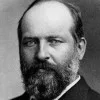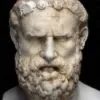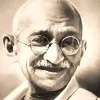If a nation values anything more than freedom, it will lose its freedom; and the irony of it is that if it is comfort or money that it values more, it will lose that too. And when a nation has to fight for its freedom, it can only hope to win if it possesses certain qualities: honesty, courage, loyalty, vision and self-sacrifice. If it does not possess them, it has only itself to blame if it loses its freedom.
Quotations about:
values
Note not all quotations have been tagged, so Search may find additional quotes on this topic.
The plain fact is that responsibility cannot be imposed. It can only grow from within, fed and directed by values absorbed at home and in the community. Responsibility that is not anchored in positive values can be antisocial and destructive. Hoodlums often show great loyalty and strong responsibility in relation to one another and to their gang. Members of the Mafia, for instance, take their duties in dead earnest; they carry out commands, give legal aid to needy associates, and take care of prisoners’ families.
Haim Ginott (1922-1973) Israeli-American school teacher, child psychologist, psychotherapist [b. Haim Ginzburg]
Between Parent and Child, ch. 4 “Responsibility and Independence” (1965)
(Source)
In the updated version of the book, Between Parent and Child: Revised and Updated Edition, ch. 4 "Responsibility" (2003 ed.) [with A. Ginott and H. W. Goddard], this paragraph was revised as follows:The plain fact is that responsibility cannot be imposed. It can only grow from within, fed and directed by values absorbed at home and in the community. Responsibility that is not anchored in positive values can be antisocial and destructive. Gang members often show great loyalty and strong responsibility in relation to one another and to their gang. Terrorists take their duties in dead earnest; they carry out commands, even if they involve sacrificing their own lives.
How rich a man is all desire to know;
But none inquires if good he be or no.
In our time we have come to live with moments of great crisis. Our lives have been marked with debate about great issues; issues of war and peace, issues of prosperity and depression. But rarely in any time does an issue lay bare the secret heart of America itself. Rarely are we met with a challenge, not to our growth or abundance, our welfare or our security, but rather to the values and the purposes and the meaning of our beloved Nation.
The issue of equal rights for American Negroes is such an issue. And should we defeat every enemy, should we double our wealth and conquer the stars, and still be unequal to this issue, then we will have failed as a people and as a nation.Lyndon B. Johnson (1908-1973) American politician, educator, US President (1963-69)
Speech (1965-03-15), “The American Promise,” Joint Session of Congress [06:27]
(Source)
The Constitution and the Declaration of Independence can live only as long as they are enshrined in our hearts and minds. If they are not so enshrined, they would be no better than mummies in their glass cases, and they could in time become idols whose worship would be a grim mockery of the true faith. Only as these documents are reflected in the thoughts and acts of Americans can they remain symbols of a power that can move the world.
There are a number of things that science can’t deal with. All questions of values. for example. Science won’t tell you what is good and what is bad — what is good or bad as an end, not just as a means.
Bertrand Russell (1872-1970) English mathematician and philosopher
Interview by Woodrow Wyatt, BBC TV (1959)
(Source)
Collected in Bertrand Russell's BBC Interviews (1959) [UK] and Bertrand Russell Speaks His Mind (1960) [US]. Reprinted (abridged) in The Humanist (1982-11/12), and in Russell Society News, #37 (1983-02).
You could say to the universe this is not fair. And the universe would say: Oh, isn’t it? Sorry.
Democracy can buckle when we give in to fear. So, just as we, as citizens, must remain vigilant against external aggression, we must guard against a weakening of the values that make us who we are.
Barack Obama (b. 1961) American politician, US President (2009-2017)
“Farewell Address,” Chicago (10 Jan 2017)
(Source)
The values to which people cling most stubbornly under inappropriate conditions are those values that were previously the source of their greatest triumphs.
Jared Diamond (b. 1937) American geographer, historian, ornithologist, author
Collapse: How Societies Choose to Fail or Succeed, ch. 8 (2005)
(Source)
It is often said that governing is the art of compromise. But this is not a statement about governing; it is rather about the values of democracy. Legislating in the common interest means not confusing one’s own values with the common values. It requires giving equal weight to values that one does not share. But too often, commitment to this principle appears weak — a failure to stand by one’s principles.
Jason Stanley (b. 1969) American philosopher, epistemologist, academic
“Democracy and the Demagogue,” New York Times (12 Oct 2015)
(Source)
Let children read whatever they want and then talk about it with them. If parents and kids can talk together, we won’t have as much censorship because we won’t have as much fear. The fear that children’s values will change because they are exposed to other values isn’t valid if there is communication between parent and child.
Judy Blume (b. 1938) American writer
“Blume Speaks Out on Speaking Out,” Interview with Barbara Karlin, Los Angeles Times (18 Oct 1981)
(Source)
Gentlemen, ideas outlive men; ideas outlive all earthly things. You who fought in the war for the Union fought for immortal ideas, and by their might you crowned the war with victory. But victory was worth nothing except for the truths that were under it, in it, and above it.
James A. Garfield (1831-1881) US President (1881), lawyer, lay preacher, educator
Speech to the “Boys in Blue,” Madison Square Park, New York City (6 Aug 1880)
(Source)
[The right wing] believe that their prestige in the community, even indeed their self-esteem, depends on having these values honored in public. Besides their economic expectations, people have deep emotional commitments in other spheres — religion, morals, culture, race relations — which they also hope to see realized in political action. Status politics seeks not to advance perceived material interests but to express grievances and resentments about such matters, to press claims upon society to give deference to non-economic values.
Douglas R. Hofstadter (b. 1945) American academic, cognitive scientist, author
“Pseudo-Conservatism Revisited — 1965,” sec. 4 (1965)
(Source)
Some Saian mountaineer
Struts today with my shield.
I threw it down by a bush and ran
When the fighting got hot.
Life seemed somehow more precious.
It was a beautiful shield.
I know where I can buy another
Exactly like it, just as round.Archilochus (c. 680-645 BC) Greek lyric poet and mercenary [Ἀρχίλοχος, Archilochos, Arkhilokhus]
Fragment 79 [tr. Davenport (1964)]
(Source)
Fragment from Plutarch, "Laws and Customs of the Lacedaemonians". Alt. trans.:Identified elsewhere as Fragment 6.
- "Let who will boast their courage in the field, / I find but little safety from my shield. / Nature's, not honour's, law we must obey: / This made me cast my useless shield away, / And, by a prudent flight and cunning, save / A life, which valour could not, from the grave. / A better buckler I can soon regain; / But who can get another life again?" [tr. Pulleyn (18th C)]
- "A Saian boasts about the shield which beside a bush / though good armour I unwillingly left behind. / I saved myself, so what do I care about the shield? / To hell with it! I'll get one soon just as good." ["To my shield" (D6, 5W)]
- "I don't give a damn if some Thracian ape struts / Proud of that first-rate shield the bushes got. / Leaving it was hell, but in a tricky spot / I kept my hide intact. Good shields can be bought." [tr. Silverman]
- "Some barbarian is waving my shield, since I was obliged to leave that perfectly good piece of equipment behind under a bush. But I got away, so what does it matter? Life seemed somehow more precious. Let the shield go; I can buy another one equally good." [tr. Lattimore (1955)]
Let me point out to you that freedom is not something that anybody can be given; freedom is something people take and people are as free as they want to be. One hasn’t got to have an enormous military in order to be unfree when it’s simpler to be asleep, when it’s simpler to be apathetic, when it’s simpler, in fact, not to want to be free, to think that something else is more important.
James Baldwin (1924-1987) American novelist, playwright, activist
“Notes for a Hypothetical Novel,” speech, San Francisco College (22 Oct 1960)
(Source)
Later published in Nobody Knows My Name (1961).
PISTOL: Knocks go and come. God’s vassals drop and die,
And sword and shield,
In bloody field,
Doth win immortal fame.BOY: Would I were in an alehouse in London! I would
give all my fame for a pot of ale, and safety.PISTOL: And I.
William Shakespeare (1564-1616) English dramatist and poet
Henry V, Act 3, sc. 2, l. 9ff (3.2.9-14) (1599)
(Source)
But I’m here to say to you this morning that some things are right and some things are wrong. Eternally so, absolutely so. It’s wrong to hate. It always has been wrong and it always will be wrong. It’s wrong in America, it’s wrong in Germany, it’s wrong in Russia, it’s wrong in China. It was wrong in 2000 B.C., and it’s wrong in 1954 A.D. It always has been wrong, and it always will be wrong.
Martin Luther King, Jr. (1929-1968) American clergyman, civil rights leader, social activist, preacher
“Rediscovering Lost Values,” Sermon, Second Baptist Church, Detroit (28 Feb 1954)
(Source)
The process which, if not checked, will abolish Man goes on apace among Communists and Democrats no less than among Fascists. The methods may (at first) differ in brutality. But many a mild-eyed scientist in pince-nez, many a popular dramatist, many an amateur philosopher in our midst, means in the long run just the same as the Nazi rulers of Germany: ‘Traditional values are to be debunked’ and mankind to be cut out into some fresh shape at the will (which must, by hypothesis, be an arbitrary will) of some few lucky people in one lucky generation which has learned how to do it.
C. S. Lewis (1898-1963) English writer, literary scholar, lay theologian [Clive Staples Lewis]
The Abolition of Man (1943)
(Source)
I’ll clue you in on a secret: death is not the worst thing that could happen to you. I know we think that; we are the first society ever to think that. It’s not worse than dishonor; it’s not worse than losing your freedom; it’s not worse than losing a sense of personal responsibility.
Keep your thoughts positive because your thoughts become your words.
Keep your words positive because your words become your behavior.
Keep your behavior positive because your behavior becomes your habits.
Keep your habits positive because your habits become your values.
Keep your values positive because your values become your destiny.
A necessary quality for the attainment of individuality is the ability to tolerate some degree of loneliness in the sense of independent adherence to values that those around you will not support.
The convictions that leaders have formed before reaching high office are the intellectual capital they will consume as long as they continue in office. There is little time for leaders to reflect. They are locked in an endless battle in which the urgent constantly gains on the important. The public life of every political figure is a continual struggle to rescue an element of choice from the pressure of circumstance.
I am stressing that it is the force of ideas rather than the impact of material things that made us a great nation. It is my conviction, too, that only the power of ideas, of enduring values, can keep us a great nation. For, where there is no vision the people perish.
I doubt that anyone does not really believe in God. People may think they don’t have any belief, but you will usually find that there is a belief in something beyond himself. In any case, I would not judge a man’s character by his belief or unbelief. I would judge his character by his deeds; and no matter what he said about his beliefs, his behavior would soon show whether he was a man of good character or bad.
Sooner or later, we are all asked to compromise ourselves and the things we care about. We define ourselves by our actions. With each decision, we tell ourselves and the world who we are. Think about what you want out of this life, and recognize that there are many kinds of success.
Bill Watterson (b. 1958) American cartoonist
Commencement Address, Kenyon College (20 May 1990)
(Source)
Selling out is usually more a matter of buying in. Sell out, and you’re really buying into someone else’s system of values, rules and rewards.
Bill Watterson (b. 1958) American cartoonist
Commencement Address, Kenyon College (20 May 1990)
(Source)
Above all things, lose no occasion of exercising your dispositions to be grateful, to be generous, to be charitable, to be humane, to be true, just, firm, orderly, courageous, &c. Consider every act of this kind, as an exercise which will strengthen your moral faculties and increase your worth.
Thomas Jefferson (1743-1826) American political philosopher, polymath, statesman, US President (1801-09)
Letter (1787-08-10) to Peter Carr
(Source)
A true revolution of values will soon look uneasily on the glaring contrast of poverty and wealth.
Martin Luther King, Jr. (1929-1968) American clergyman, civil rights leader, social activist, preacher
Where Do We Go from Here: Chaos or Community? (1967)
(Source)
Education must be based on two things: ethics and prudence; ethics in order to develop your good qualities, prudence to protect you from other people’s bad ones. If you attach too great an importance to goodness, you produce credulous fools; if you’re too prudent, you produce self-serving, scheming rogues.
[L’Éducation doit porter sur deux bases, la morale et la prudence ; la morale, pour appuyer la vertu ; la prudence, pour vous défendre contre les vices d’autrui. En faisant pencher la balance du côté de la morale, vous ne faites que des dupes ou des martyrs; en la faisant pencher de l’autre côté, vous faites des calculateurs égoïstes.]
Nicolas Chamfort (1741-1794) French writer, epigrammist (b. Nicolas-Sébastien Roch)
Products of Perfected Civilization [Produits de la Civilisation Perfectionée], Part 1 “Maxims and Thoughts [Maximes et Pensées],” ch. 5, ¶ 321 (1795) [tr. Parmée (2003), ¶ 205]
(Source)
(Source (French)). Alternate translations:Education must have two foundations -- morality as a support for virtue, prudence as a defence for self against the vices of others. By letting the balance incline to the side of morality, you only make dupes or martyrs; by letting it incline to the other, you make calculating egoists.
[tr. Hutchinson (1902)]Education should rest on the dual support of moral philosophy and prudence, moral philosophy as the stay of virtue, and prudence as a shield against the vice in others. If you tip the scale on the moral side you will produce none but dupes and martyrs, and by tilting it in the other direction you will develop a quality of selfish calculation only.
[tr. Mathers (1926)]Education should be constructed on two bases: morality and prudence. Morality in order to assist virtue, and prudence in order to defend you against the vices of others. In tipping the scales toward morality, you merely produce dupes and martyrs. In tipping it the other way, you produce egotistical schemers.
[tr. Merwin (1969)]Education must have two foundations, morality and carefulness: morality to support virtue; carefulness to defend against others' vices. By inclining this balance to the side of morality, you only make dupes and martyrs; by inclining it to carefulness, you make calculating egoists.
[tr. Siniscalchi (1994)]
Although my mother didn’t know anything about science, she had a great influence on me as well. In particular, she had a wonderful sense of humor, and I learned from her that the highest forms of understanding we can achieve are laughter and human compassion.
Richard Feynman (1918-1988) American physicist
What Do You Care What Other People Think?, “The Making of a Scientist” (1988)
(Source)
It will presumably be thought better, indeed one’s duty, to do away with even what is close to one’s heart in order to preserve the truth, especially when one is a philosopher. For one might love both, but it is nevertheless a sacred duty to prefer the truth to one’s friends.
[ἀληθείας καὶ τὰ οἰκεῖα ἀναιρεῖν, ἄλλως τε καὶ φιλοσόφους ὄντας: ἀμφοῖν γὰρ ὄντοιν φίλοιν ὅσιον προτιμᾶν τὴν ἀλήθειαν.]
Aristotle (384-322 BC) Greek philosopher
Nicomachean Ethics [Ἠθικὰ Νικομάχεια], Book 1, ch. 6 (1.6, 1096a.15) (c. 325 BC) [tr. Crisp (2000)]
(Source)
This is actually not given as a general guideline for living life, but specifically about offering a philosophical argument in opposition that offered by friends. (Source (Greek)). Alternate translations:Still perhaps it may appear better, nay to be our duty where the safety of the truth is concerned, to upset if need be even our own theories, specially as we are lovers of wisdom: for since both are dear to us, we are bound to prefer the truth.
[tr. Chase (1847), ch. 3]And yet, where the interests of truth are at actual stake, we ought, perhaps, to sacrifice even that which is our own -- if, at least, we are to lay any claim to a philosophic spirit. Both are dear to us alike, but truth must be religiously preserved.
[tr. Williams (1869)]Yet it will perhaps seem the best, and indeed the right course, at least when the truth is at stake, to go so far as to sacrifice what is near and dear to us, especially as we are philosophers. For friends and truth are both dear to us, but it is a sacred duty to prefer the truth.
[tr. Welldon (1892)]In the interests of truth we ought to sacrifice even what is nearest to us, especially as we call ourselves philosophers. Both are dear to us, but it is a sacred duty to give the preference to truth.
[tr. Peters (1893)]Yet it would perhaps be thought to be better, indeed to be our duty, for the sake of maintaining the truth even to destroy what touches us closely, especially as we are philosophers or lovers of wisdom; for, while both are dear, piety requires us to honour truth above our friends.
[tr. Ross (1908)]Still perhaps it would appear desirable, and indeed it would seem to be obligatory, especially for a philosopher, to sacrifice even one's closest personal ties in defense of the truth. Both are dear to us, yet 'tis our duty to prefer the truth.
[tr. Rackham (1934)]Yet it would seem better, perhaps, and something we should do, at any rate when the preservation of the truth is at stake, to confute even what is properly our own, most of all because we are philosophers. For while we love both our friends and the truth, it is a pious thing to accord greater honor to the truth.
[tr. Reeve (1948)]Yet it would perhaps be thought better, and also our duty, to forsake even what is close to us in order to preserve the truth, especially as we are philosophers; for while both are dear, it is sacred to honor truth above friendship.
[tr. Apostle (1975), ch. 4]Yet surely it would be thought better, or rather necessary (above all for philosophers), to refute, in defence of truth , even views to which one is attached; since both are dear, it is right to give preference to the truth.
[tr. Thomson/Tredennick (1976)]Still, it presumably seems better, indeed only right, to destroy even what is close to us if that is the way to preserve truth. And we must especially do this when we are philosophers, lovers of wisdom; for though we love both the truth and our friends, piety requires us to honor the truth first.
[tr. Irwin/Fine (1995)]But perhaps it might be held to be better, in fact to be obligatory, at least for the sake of preserving the truth, to do away with even one's own things, especially for those who are philosophers. For although both are clear, it is a pious thing to honor the truth first.
[tr. Bartlett/Collins (2011)]
Truth is always in danger of being sacrificed on the altars of good taste and social stability.
William Sloane Coffin, Jr. (1924-2006) American minister, social activist
Credo, “Social Justice and Civil Liberties” (2004)
(Source)
Frightful this is in a sense, but it is true, and every one who has merely some little knowledge of the human heart can verify it: there is nothing to which a man holds so desperately as to his sin.



































